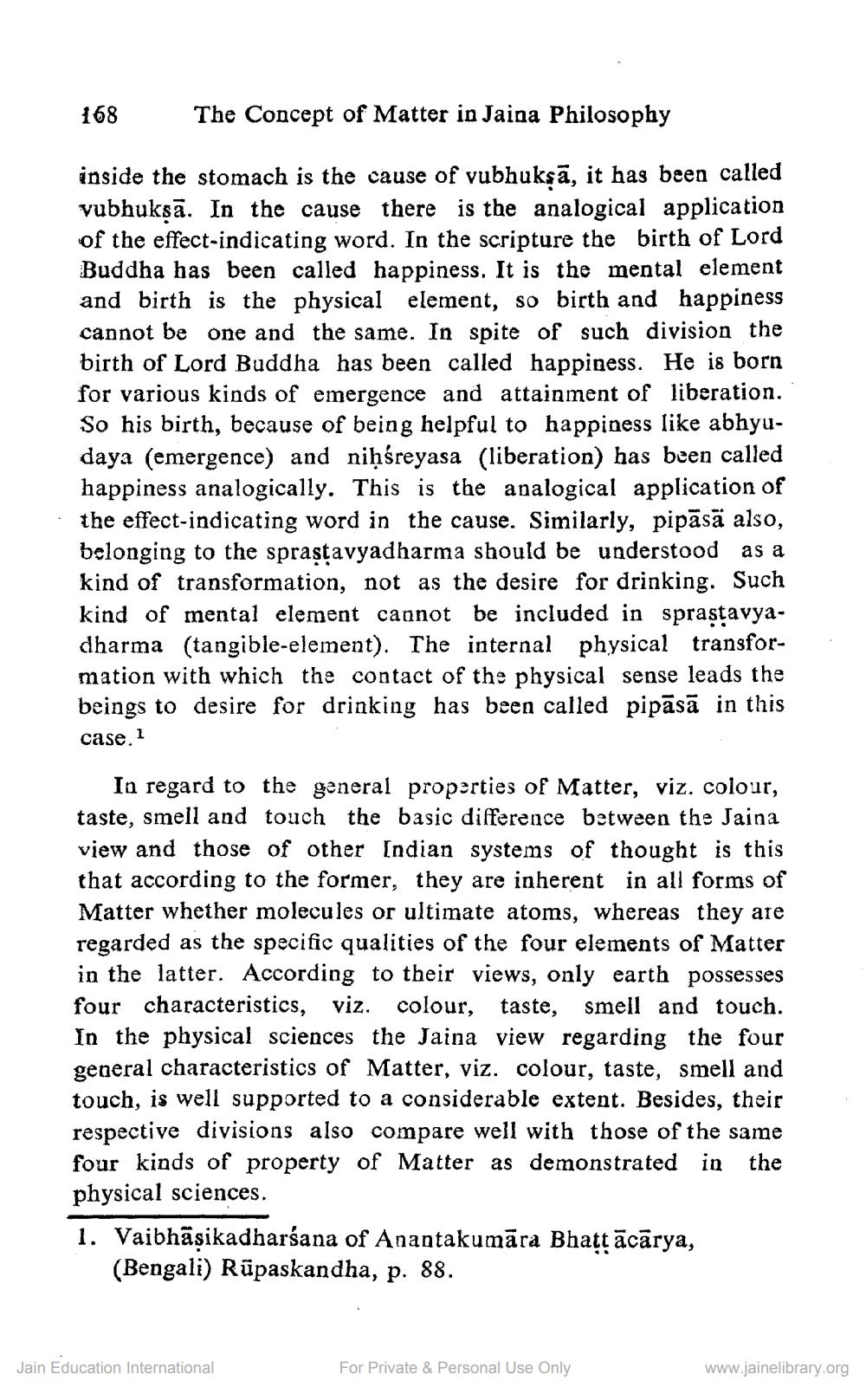________________
168
The Concept of Matter in Jaina Philosophy
inside the stomach is the cause of vubhuksā, it has been called vubhuksā. In the cause there is the analogical application of the effect-indicating word. In the scripture the birth of Lord Buddha has been called happiness. It is the mental element and birth is the physical element, so birth and happiness cannot be one and the same. In spite of such division the birth of Lord Buddha has been called happiness. He is born for various kinds of emergence and attainment of liberation. So his birth, because of being helpful to happiness like abhyudaya (emergence) and niḥśreyasa (liberation) has been called happiness analogically. This is the analogical application of the effect-indicating word in the cause. Similarly, pipāsä also, belonging to the sprașțavyadharma should be understood as a kind of transformation, not as the desire for drinking. Such kind of mental element cannot be included in sprastavyadharma (tangible-element). The internal physical transformation with which the contact of the physical sense leads the beings to desire for drinking has been called pipāsā in this case. 1
In regard to the general properties of Matter, viz. colour, taste, smell and touch the basic difference between the Jaina view and those of other Indian systems of thought is this that according to the former, they are inherent in all forms of Matter whether molecules or ultimate atoms, whereas they are regarded as the specific qualities of the four elements of Matter in the latter. According to their views, only earth possesses four characteristics, viz. colour, taste, smell and touch. In the physical sciences the Jaina view regarding the four general characteristics of Matter, viz. colour, taste, smell and touch, is well supported to a considerable extent. Besides, their respective divisions also compare well with those of the same four kinds of property of Matter as demonstrated in the physical sciences. 1. Vaibhāsikadharśana of Anantakumāra Bhattācārya,
(Bengali) Rūpaskandha, p. 88.
Jain Education International
For Private & Personal Use Only
www.jainelibrary.org




